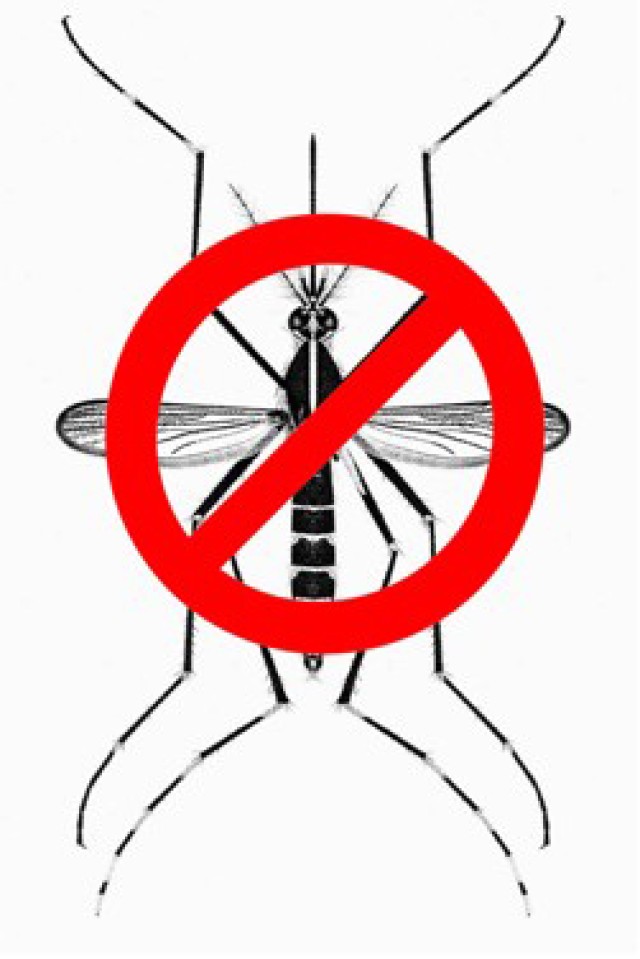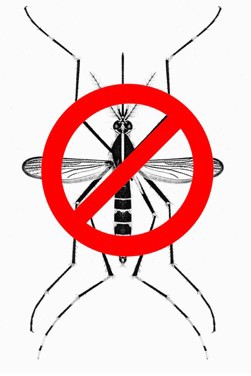HONOLULU - The Hawaii State Department of Health, or DOH, is investigating two confirmed cases and two suspected cases of Oahu residents who had become ill with dengue fever, in late February, according to a recent DOH news release.
All four adults have recovered and are no longer ill.
Based on the ongoing investigation, the four cases appear to be related, and all were infected by mosquitoes near their homes.
Dengue fever is a virus-based disease spread by mosquitoes.
"The (DOH) immediately began precautionary measures by conducting additional testing, surveying and developing a mosquito-control plan for the specific areas where these four individuals were likely infected," said Loretta Fuddy, health director, DOH. "We need the public's help to clean up mosquito breeding areas throughout Oahu, by emptying all standing water and checking gutters and other areas that collect water."
The DOH sent out a medical alert to Oahu physicians, March 22, advising them to consider potential dengue infection in people with compatible symptoms, to request appropriate laboratory testing and to report all suspected cases to the DOH.
"Dengue is a potentially serious infection that is transmitted by mosquitoes," said Dr. Clarissa Burkert, chief, Occupational Health, Tripler Army Medical Center, in an email. "Protect yourself against mosquito bites and try to get rid of mosquito breeding areas around your home. If you develop symptoms of dengue, such as a high fever; severe headache; eye, joint (and) muscle pain; and rash, see your doctor."
Younger children tend to have a milder illness than older children, and adults may show no symptoms. Symptoms may last up to 10 days, but complete recovery can take two to four weeks, according to the DOH.
The DOH advises that treatment consists of rest, fluids and medications, such as acetaminophen or ibuprofen, to reduce fever. Aspirin shouldn't be used to treat a dengue fever patient.
Those with high fever, in addition to any of the symptoms for dengue fever, should see their doctor for evaluation.
Aedes mosquitoes, which occur primarily in tropical and subtropical areas of the world, transmit the viral disease. Mosquitoes become infected by biting people with the fever and then pass on that infection when biting another person.
Infected people should stay indoors to ensure they are not bitten by mosquitoes and indirectly pass on the infection.
The U.S. Army Garrison-Hawaii Directorate of Public Works is conducting site surveys and sprayed a forested area at Wheeler Army Airfield as a preventative measure against dengue fever, Thursday. Spraying occurred during early morning hours when wind conditions were still and no personnel were downwind or nearby.
Residents who cannot control mosquito breeding grounds in their areas can submit a work order at www.25idl.army.mil/dpw/customer_service.html.
The Dept. of Preventive Medicine, TAMC, offers the following information regarding dengue fever.
Dengue fever symptoms
Consult your doctor if you have any of the following dengue fever symptoms: high fever, severe headaches, muscle and joint pains, a rash and/or vomiting.
Sources of mosquito breeding
Residents are reminded to eliminate breeding grounds for mosquitoes, which include tires, bottles or cans, trash, clogged roof gutters, flower pots, water-containing plants and/or any other item that can hold water.
Protect families
Follow the following tips to help protect your loved ones:
-Avoid going outside when mosquitoes are most active, during dawn and dusk hours.
-Cover up with clothing as much as possible.
-Use insect repellents on exposed skin.
-Use mosquito repellents with 20-50 percent DEET.
-For children under age 5, use products with DEET concentrations no greater than 10 percent.
-For children older than 5, use products with DEET concentrations no higher than 15 percent.
-Always read and follow the labels on insect repellants.
-Remember, vitamins, herbal mixtures, ultrasonic devices and bath oils are not effective at repelling mosquitoes. Use only products that are U.S. Environmental Protection Agency-approved.
To learn more about dengue fever, call TAMC's Dept. of Preventive Medicine at 808-433-9944, or visit www.hawaii.gov/health/DIB/Dengue.html.


Social Sharing